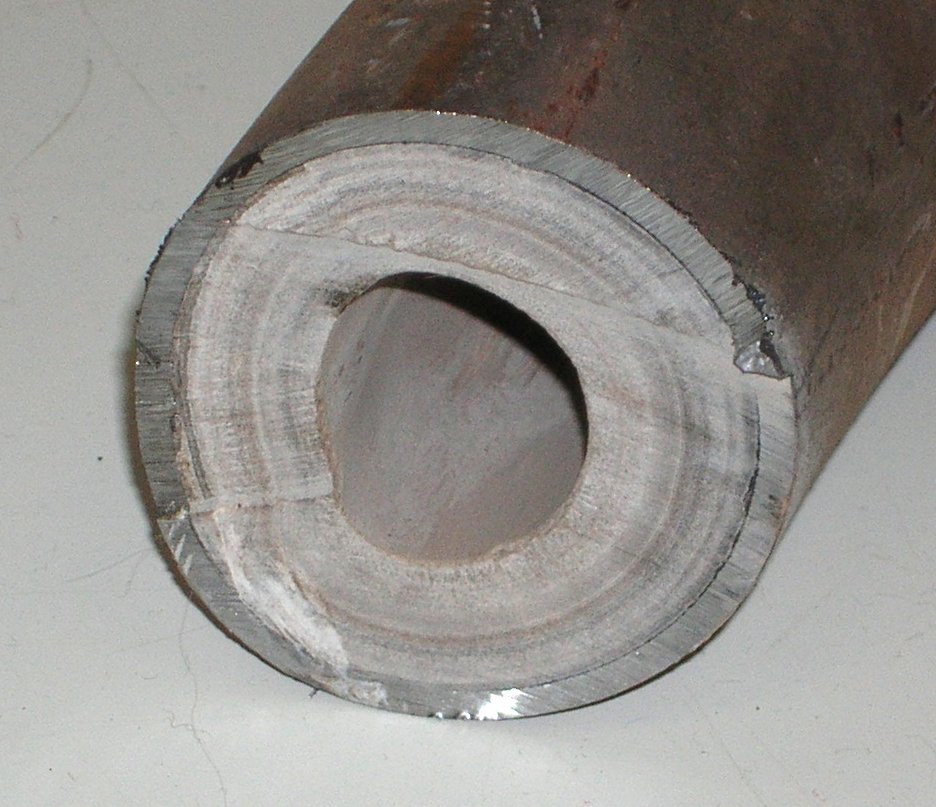scale
Scale is a precipitated coating of calcium carbonate on the walls of vessels or pipes through which hard water, whose temperature is lower than 100 °C, is conducted or mainly heated and then cooled. The basic component of scale is usually calcium carbonate. The formation of scale is caused by a change in the balance between the ions of carbonic acid and calcium hydroxide when the temperature changes and their exclusion from the water. Preventing the formation of water scale and its removal can be solved in different ways:
mechanical methods: abrasion of the formed stone
chemical methods: dissolution using acids (citric acid, hydrochloric acid)
physical methods: magnetic treatment plant, galvanic treatment using a zinc anode.

Limestone has a characteristic white color, in rare cases it can be colored yellow or brown. Its deposits can be found wherever hard water flows.
Limescale refers to deposits that can arise from various calcium and magnesium salts dissolved in water. Limestone can be smooth or rough, white to yellowish/brown.
Calcareous deposits are formed where the water from the water supply network is heated, e.g. in water heaters such as kettles, coffee machines or ironing stations. Hard water (containing scale) is formed when "soft" rainwater seeps through bedrock containing limestone and dissolves calcium and magnesium carbonate in mineral form.
Calcium (minerals containing calcium) is vital. The body needs calcium for building bones and teeth, blood clotting, muscle activity and the transmission of impulses in the nervous system.
Calcium forms a significant part of the minerals in water.
